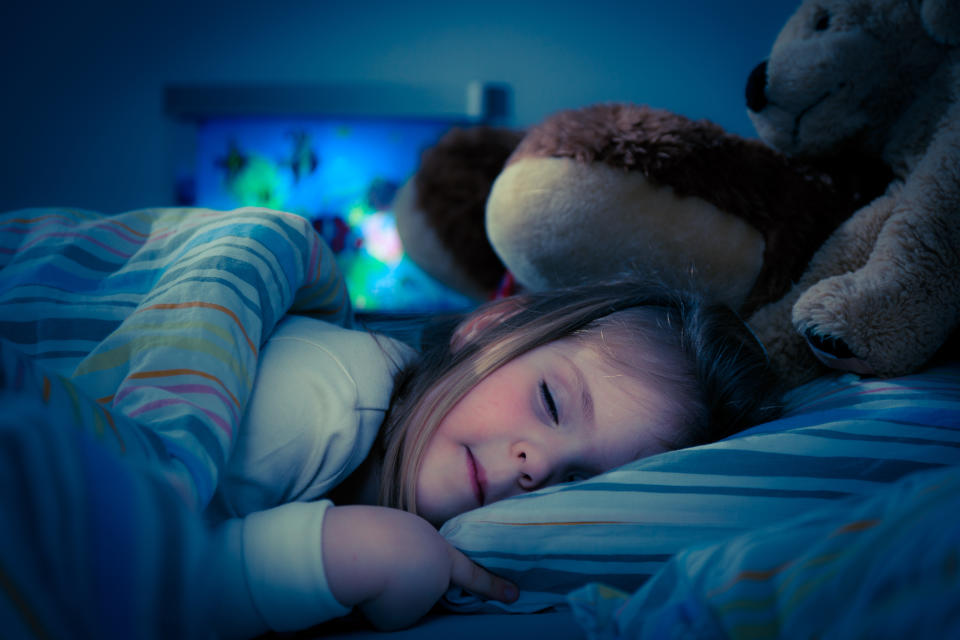8 tips to help stop your kids' night terrors
Watching your child experience a nightmare – or even worse, a night terror – is a scary experience for any parent.
Night terrors affect about one in every 20 kids and in many case the sleeping child is seen crying or screaming in their sleep, or thrashing around in bed.
Each frightful episode can last anywhere from a few minutes to almost an hour, during which parents are recommended not to disturb their children as experts claim will fall calmly back to sleep when it’s over and wake up with no recollection of it ever happening.
Unlike nightmares, where you can often remember what happened, night terrors are different in that you don’t remember the incident.

While the reason that these terrors are forgotten has been put down to the fact that they occur during the transitional period between deep non-REM (Rapid Eye Movement) sleep and REM sleep, the actual trigger is rather unclear, other than an over-arousal of the central nervous system.
So how can you prevent these terrors from happening to your child?
Speaking with Be, sleep consultant Catalina Lau, and Glow Dreaming founder Cara, offered their top tips:
Routine and consistency:
According to Cara, “The pre-bedtime routine is a critical part of reducing the likelihood of night terrors.”
This is because “familiarity and routine is the best safety blanket your child can have.”
Not only will children feel safer if they can rely on a structured routine before going to bed, but with a consistent bedtime and wake time, their bodies will also adapt to these schedules and enhance their overall sleep quality.

Getting to bed before they’re too tired:
Being overtired is said to act as a trigger for those suffering night terrors which is why it’s so important to try to get your child ready for bed before they get too tired and start playing up.
Otherwise, the bedtime routine may feel forced or rushed and potentially make them stress.
Clingy kids, hyperactivity and increased tantrums are common signs that your kid is becoming overtired, however, what you should also be aware of is micro day sleeps.
“If you’re noticing a lot of micro-snoozes in the car or the stroller, chances are it’s your little one’s brain trying to make up for insufficient sleep,” Cara says.
“We’ve all heard of the ‘witching hour’ which falls between four and six PM. This is the time your child may start to become ridiculously fussy, irritable and irrational.
Parents tend to think of this as a normal occurrence because it’s common in toddlers, but the truth is, if your child is getting enough sleep, this shouldn’t be happening.”

Narrate the evening:
Parents are recommended to find ways to pleasantly remind your child about their upcoming bed routine so that they can process and prepare for sleep.
“By talking and walking your child through their sleep routine we remove any anxiety or fear they may have of falling asleep,” Cara says.
This should be done by telling them what will be coming up soon, what steps you’re going to take and what they will experience, to help remove any chance of unexpected fear or surprises.
Empower your children:
Let your child feel that they have control by empowering them with choice.
Before bed encourage them to select their pyjamas, toys they want to sleep with and stories they’d like to read, so that way they feel like they are in charge of their bedtime.
“Essentially, we are giving their developing mind ownership of the situation allowing them to better control their emotions and most importantly eliminating stress through understanding the situation,” Cara says.

Breathing techniques:
Another alternative is to teach your child simple breathing techniques to do before bed to help calm them down.
Catalina recommends making this exercise fun and interactive which can be done by counting breaths or having them place their hands on their belly and imagine it’s a balloon as they inhale and exhale.
Use visual and verbal cues:
To reinforce structure and expectations, a great idea is to use visual and verbal cues so that they remember it’s getting close to bedtime.
According to Cara, “good visual cues include red LED lights, toys that are only brought out for nighttime sleep or a book that is always read. In order for the visual cue to be successful, it must be used every night and only be used for sleep.”

Cuddles and questions:
It’s always a good idea to tuck your child in at night and keep their mind distracted from any potential fears by asking them positive questions, perhaps, ‘what they are excited about doing tomorrow?’
And of course, a cuddle and a kiss will always go a long way in helping your child feel safe before they drift off to sleep.

Let there be light:
Placing a night light in the bedroom is another way to ensure your child feels safe and aware of where they are during the night, while the soothing glow encourages them to drift off easily.
Got a story tip? Send it to tips@yahoo7.com.au
Want more celebrity, entertainment and lifestyle news? Follow Be on Facebook, Twitter, Pinterest, Tumblr and Instagram.

 Yahoo Lifestyle
Yahoo Lifestyle 

